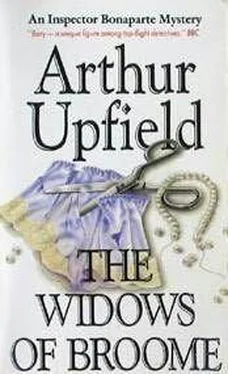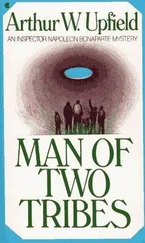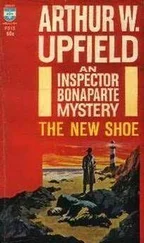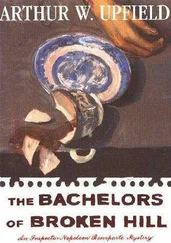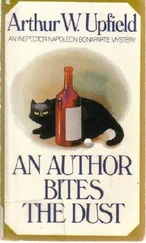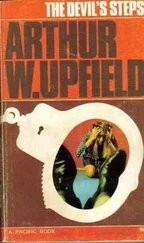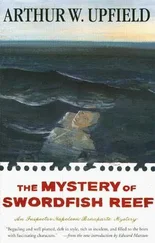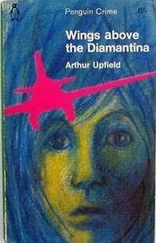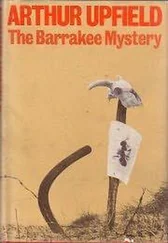Arthur Upfield - The Widows of broome
Здесь есть возможность читать онлайн «Arthur Upfield - The Widows of broome» весь текст электронной книги совершенно бесплатно (целиком полную версию без сокращений). В некоторых случаях можно слушать аудио, скачать через торрент в формате fb2 и присутствует краткое содержание. Жанр: Классический детектив, на английском языке. Описание произведения, (предисловие) а так же отзывы посетителей доступны на портале библиотеки ЛибКат.
- Название:The Widows of broome
- Автор:
- Жанр:
- Год:неизвестен
- ISBN:нет данных
- Рейтинг книги:5 / 5. Голосов: 1
-
Избранное:Добавить в избранное
- Отзывы:
-
Ваша оценка:
- 100
- 1
- 2
- 3
- 4
- 5
The Widows of broome: краткое содержание, описание и аннотация
Предлагаем к чтению аннотацию, описание, краткое содержание или предисловие (зависит от того, что написал сам автор книги «The Widows of broome»). Если вы не нашли необходимую информацию о книге — напишите в комментариях, мы постараемся отыскать её.
The Widows of broome — читать онлайн бесплатно полную книгу (весь текст) целиком
Ниже представлен текст книги, разбитый по страницам. Система сохранения места последней прочитанной страницы, позволяет с удобством читать онлайн бесплатно книгу «The Widows of broome», без необходимости каждый раз заново искать на чём Вы остановились. Поставьте закладку, и сможете в любой момент перейти на страницу, на которой закончили чтение.
Интервал:
Закладка:
Chapter Seven
At Dampier’s Hotel
JOHNNO was from Java. For several seasons he had worked under-water as a number-one diver, and when paralysis tore into him one afternoon, he decided to quit diving and run a hire car service. The service consisted of one old car, but in transporting people to and from the aerodrome, and the stores, he prospered surprisingly. His speciality was conveying gentlemen to Dampier’s Hotel.
Precisely at seven, he appeared at the post office to pick up Mr. Dickenson and Napoleon Bonaparte. He stopped with complaining tyres, agilely alighted and opened the door for his passengers, smiling as though they were his dearest friends. He was small and electrical, and he wore khaki drill shirt and shorts with an air of naive grandeur.
“There’s no need for abnormal speed, Johnno,” remarked Mr. Dickenson as he took his seat. His worn clothes were less conspicuous against the upholstery of the car, but given a top-hat to crown his head he could have been the President of France. The car swept into high speed, and Johnno lounged over the back of the front seat to converse with his passengers and steer with one hand.
“As long as the wheels stay on we may arrive,” remarked Bony.
“Arrive!” echoed Johnno. “I always arrive. Peoples say, Johnno you arrive at nine o’clock, two o’clock, any ole time, and I arrive. Peoples like to arrive. I like to arrive. We all arrive.”
“Then keep on the road,” advised Mr. Dickenson.
The off-side wheels were gouging into the soft earth off the narrow strip of macadamised roadway, and Johnno brought the car to the path prepared for it, and laughed. Sweeping past the southern boundary of the airport, with its control tower and hangars and white boundary markers, they were running over a natural earth road of the North-West. The road skirted the dry tidal flats of the Dampier Creek, the surface almost white and powdered with the dust which rose like belching smoke behind the car. When the track turned suddenly into the scrub and the ground was sandy and red, the “smoke” was rising high above the trees so that anyone in Broome chancing to look out would know that Johnno would presently arrive, barring accidents.
It was quite a good road for the North-West, and safe at ten miles an hour. All Johnno had to do was to keep the wheels in the twin ruts made by motor traffic, but at thirty miles an hour this is somewhat difficult. Kangaroos leisurely hopped across in front of the car. Bush turkeys ran, then stopped to look their astonishment, and the several species of cockatoos shrieked their defiance at Johnno and his car.
By the time they reached the big red gums bordering Cuvier Creek, Mr. Dickenson was grim, Bony was inclined to keep his eyes shut, and Johnno was still laughing. He pulled up with screaming brake drums at the veranda steps of the large and rambling one-storeyed structure which had been the Mecca of thousands of travellers over the last sixty years. Johnno stood at the door he had opened for his passengers, his good teeth emphasising the dark velvet of his creaseless face.
“What time do you wish to leave?” he asked.
Bony turned to Mr. Dickenson, and the old man raised his white brows and considered.
“Perhaps at eleven,” he said, tentatively, and Bony agreed.
“Very well. I arrive at eleven,” predicted Johnno. “You pay now, eh? Yes, three pounds. No worry then going home about money. You enjoy yourselves. Money is hell. You sing and you laugh, and you leave everything to Johnno. And if you are a bit too, too merry, Johnno will put you to bed when you arrive.”
“Fair enough, Johnno,” Bony said, chuckling, and from the veranda he turned and watched the car disappear into the scrub beyond the pall of red dust.
The top-most branches of the creek gums were bedecked with rubies by the setting sun, and the remaining branches of a tall dead tree were outlined in white by cockatoos preparing to roost for the night. As this land is north of Capricorn, the twilight is ever short, and Bony wanted to view the hotel yard before the light failed. He made the universal excuse, and Mr. Dickenson led the way through the building to the rear door.
It was a spacious yard of plain red earth enclosed with a paling fence. Along one side was the narrow building devoted to single bedrooms and invariably occupied by male guests. At the far end stood the garages and stables, whilst a divisional fence marked off a large plot of lawn bordering the creek along the third side. The yard was scrupulously tidy, and the entire establishment was indicative of good management.
Swept of all litter though it was, the tracker would have had an easy task to indicate to his white superiors the footprints of Mrs. Cotton’s murderer had the man who had found her and all those in the hotel who had trooped out at his alarm not smothered them with their boots. On recrossing the yard, Bony foundhimself familiar with the scene from the sketch-plan prepared by Sergeant Sawtell.
Here was the “Spot Marked X”, to reach which Mrs. Cotton must have come from one of two doors at the rear of the house. Her bedroom faced the lawn beyond the division fence, and midway in that fence was a small wicket gate on which was the word “Private”. She could have walked through that gate, or her body could have been carried through it by her murderer. If the latter, then why? If she had been killed in her room, then why was her body brought out to the yard and left there some time before eleven-thirty? The theory that she had walked in her sleep was the only reasonable explanation.
No footprints left in the yard by the murderer, and no finger-prints of a man in her bedroom. Sawtell had been able to prove that. A half-caste girl was taking washing from the line beyond the division fence, and she was laughingly beseeching a small aboriginal boy not to turn the tap from which water would flow through a hose to the sprinkler. An aborigine trundled a barrow loaded with wood from the stack across the yard to the kitchen door, and he shouted to the girl to hurry with the clothes, and laughed at Bony as though it were a fine joke for the imp to play.
There were only five men lounging in the main bar. Two oil-lamps suspended from the ceiling had recently been lit, their wicks not yet turned up. Behind the bar stood a giant screen composed of large pearl shells from which all the dross had been removed and the screen itself fashioned into the likeness of an oyster shell. Spaced between the bottles on the shelves were polished tortoise-shells, and framed pictures of luggers. In the angle stood a potted palm growing from the terrible teeth of a tiger shark resting on a small occasional table. The entire front of the bar could be raised on hinges, but tonight was bolted down to the main struts.
“What’s it to be?” asked Mr. Dickenson, his poise sure in the possession of Bony’s “loan”. They breasted the bar. A young man came from the five men at the far end, and he appeared uncertain until he caught sight of the pound note the old man put down on the counter.
“How’s things, Pop?” he enquired cheerfully after scrutinising Bony.
“My name is Dickenson, young man,” returned Mr. Dickenson in the tone of one accustomed to authority. “Had I begotten sons, they would have been respectful to their elders.”
“Suits me, if that’s how you feel about it,” countered the barman with no change of countenance.“Thought you didn’t get your quarterly interest until the thirtieth.”
Mr. Dickenson flushed, and Bony softly interposed.
“Wonder where I’ve seen you before. Could have been in Sydney.”
The barman shook his head.
“Never been in Sydney. Don’t recall having met you. What’s your name?”
“Knapp. What’s yours?”
Читать дальшеИнтервал:
Закладка:
Похожие книги на «The Widows of broome»
Представляем Вашему вниманию похожие книги на «The Widows of broome» списком для выбора. Мы отобрали схожую по названию и смыслу литературу в надежде предоставить читателям больше вариантов отыскать новые, интересные, ещё непрочитанные произведения.
Обсуждение, отзывы о книге «The Widows of broome» и просто собственные мнения читателей. Оставьте ваши комментарии, напишите, что Вы думаете о произведении, его смысле или главных героях. Укажите что конкретно понравилось, а что нет, и почему Вы так считаете.
